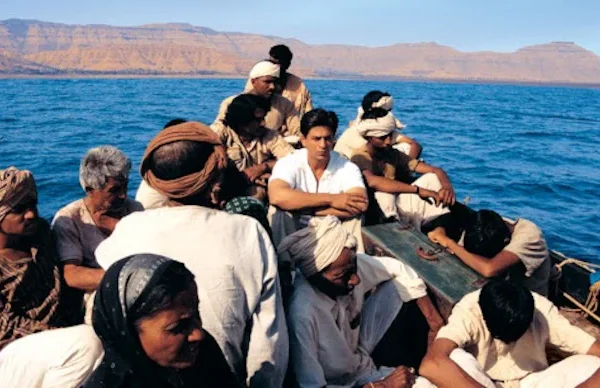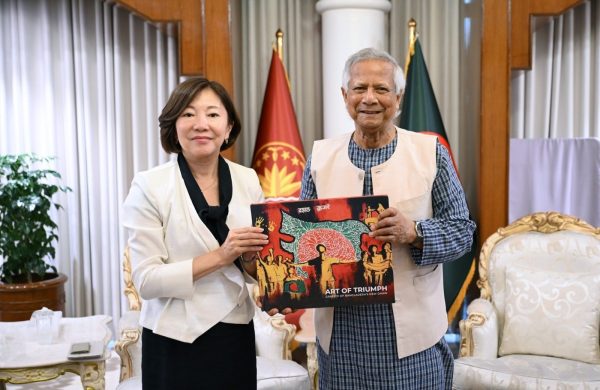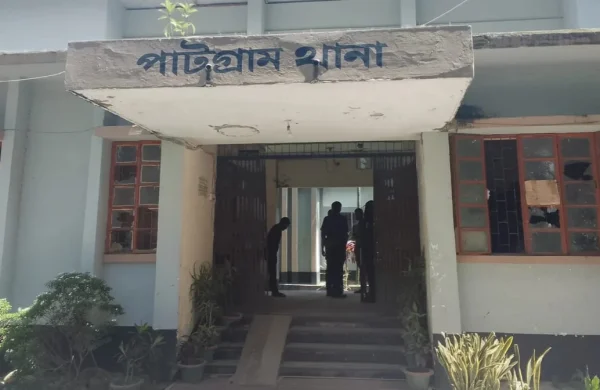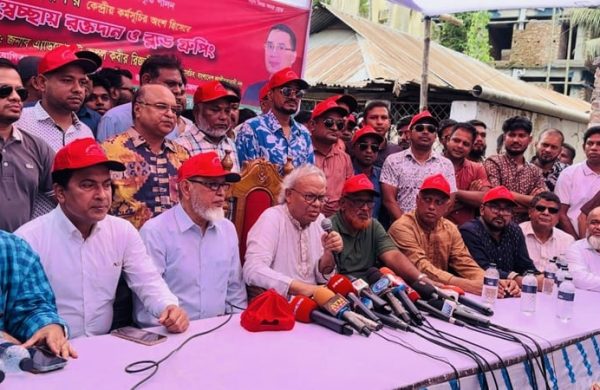20 years of Swades: Exploring the timeless relevance of Shah Rukh Khan film
- Update Time : Wednesday, December 18, 2024

Entertainment Desk:
Released in 2004, Ashutosh Gowariker’s Swades remains a poignant narrative in Indian cinema. Starring Shah Rukh Khan, it explores themes of identity, responsibility, and self-reliance.
Released in 2004, Ashutosh Gowariker’s Swades stands as one of Indian cinema’s most poignant narratives, seamlessly blending the personal and the societal. Starring Shah Rukh Khan as Mohan Bhargava, an NRI who reconnects with his roots, Swades tells a story transcending its time. It’s 2024, which means that even after two decades since the film’s release, its themes of identity, responsibility, and self-reliance remain as relevant as ever. This is one of the main reasons it resonated with the audience in an ever-globalising world.
At its core, Swades is mainly about rediscovering one’s roots and embracing the challenges of belonging. Mohan, a NASA scientist living a life of comfort and professional success in the United States, embarks on a journey to rural India to find Kaveri Amma, the woman who brought him up.
What begins as a personal mission evolves into a transformative experience, as he confronts the stark realities of rural poverty, inequality, and the lack of basic amenities. Mohan’s journey mirrors the struggles of countless expatriates who grapple with the feeling of almost being displaced in a way, between their adopted lives abroad and the pull of their homeland.
The film’s nuanced portrayal of this internal conflict strikes a chord even today. As globalisation continues to create opportunities for individuals to work and live abroad, the question of contributing to one’s homeland remains pertinent. Swades has, since day one, challenged its viewers to reflect on their responsibilities to their roots, presenting a compelling case for balancing personal ambitions with collective good.
One of Swades’ most enduring legacies is its focus on rural development and self-reliance. The film has highlighted the systemic challenges faced by India’s villages, including the lack of electricity, access to clean water, and educational opportunities. Through the innovative hydroelectric project spearheaded by Mohan, the narrative underscores the transformative power of science and technology in addressing these issues.
Mohan’s years of education and experience in the United States, particularly his tenure at NASA, ultimately pays off in the most meaningful way. As a token of gratitude, he gives back to his village by facilitating access to essential amenities, benefiting not only the villagers but also the village as a whole.
This focus on grassroots empowerment aligns closely with the principles of self-sufficiency (aatmanirbharta) championed by leaders like Mahatma Gandhi. By showcasing the potential of localised solutions, Swades inspires viewers to believe in the possibility of change from within. The hydroelectric project becomes a metaphor for hope and resilience, reminding us that collective action and innovation can overcome even the most daunting challenges.
A movie does not consist solely of direction, acting, and cinematography but also music. A film’s soundtrack plays a pivotal role in driving the plot forward. The music of Swades, composed by AR Rahman, deepens the emotional resonance of the film. Tracks like “Yeh Jo Des Hai Mera” capture the essence of Mohan’s bittersweet journey, evoking feelings of pride, responsibility, and nostalgia. The album transcends language barriers, creating a profound connection with listeners who have ever experienced the bittersweet emotion of homesickness.
The brilliance of Javed Akhtar’s lyricism is drizzled everywhere on this album. It elevates the themes of the film and gets seamlessly intertwined with the narrative. Tracks such as “Pal Pal Hai Bhaari” celebrate India’s cultural richness, while “Yun Hi Chala Chal” offers a philosophical take on life’s journey. The combination of Rahman’s compositions and Akhtar’s poetic brilliance ensures that the music of Swades remains timeless.
Perhaps the most powerful aspect of Swades is its ability to inspire action. The film’s message is clear: change begins with individuals willing to step out of their comfort zones. Mohan’s transformation from a detached observer to an active participant in his village’s upliftment serves as a blueprint, demonstrating that one person can make a difference.
For today’s youth, who are increasingly aware of global and local challenges, Swades offers a message of hope and agency. The film reminds us that while systemic issues may seem insurmountable, grassroots efforts can create ripple effects of change. It is a clarion call to harness one’s skills and resources for the betterment of society.
What makes Swades truly timeless is its universal appeal. Its themes of identity, belonging, and responsibility are not confined to any particular culture or era. Whether it is an Indian expatriate longing to reconnect with their homeland or anyone grappling with the balance between personal success and societal good, the film’s message resonates across borders.
As the world grapples with issues like climate change, inequality, and cultural preservation, Swades continues to serve as a reminder of the power of individual action. Its emphasis on self-reliance and the potential of local communities to solve their own problems is a lesson that remains relevant in today’s fast-paced, interconnected world.
Ashutosh Gowariker’s Swades is more than just a film—it’s a powerful narrative that challenges and inspires. Through Mohan Bhargava’s journey, the film holds a mirror to society, urging us to reflect on our roles and responsibilities.
The poignant lyrics by Javed Akhtar, “Yeh jo des hai mera, swades hai mera. Ye wo bandhan hai jo kabhi toot nahi sakta,” continue to resonate with audiences, inspiring future generations to reevaluate their connection to their homeland.
As we navigate the complexities of a globalised world, Swades remains a beacon of hope, reminding us that true progress lies in rediscovering our roots and working collectively towards a brighter future.



















